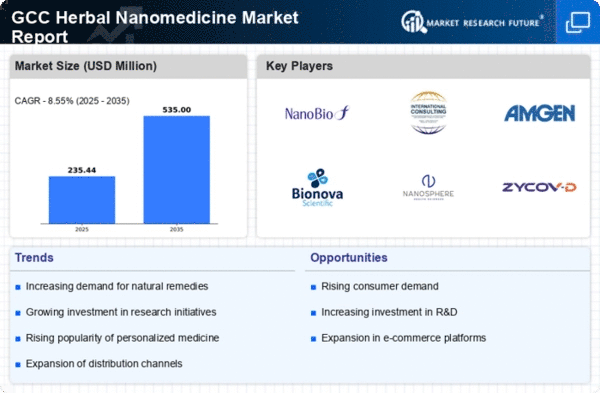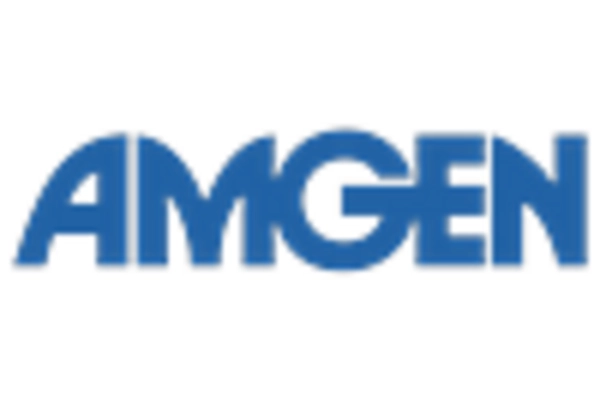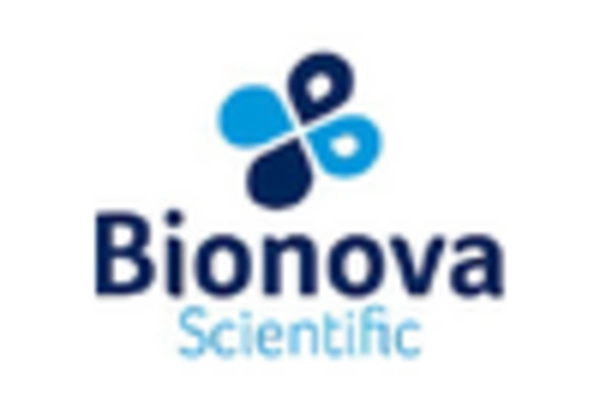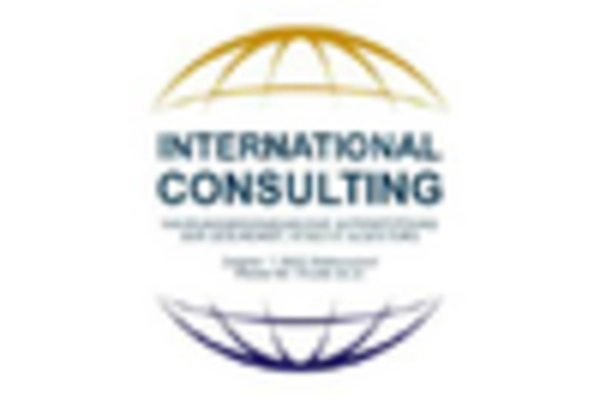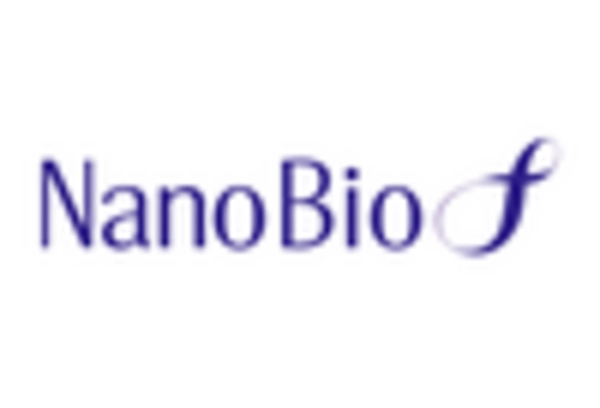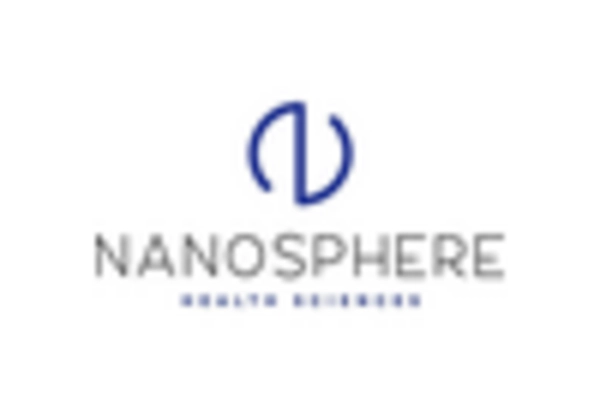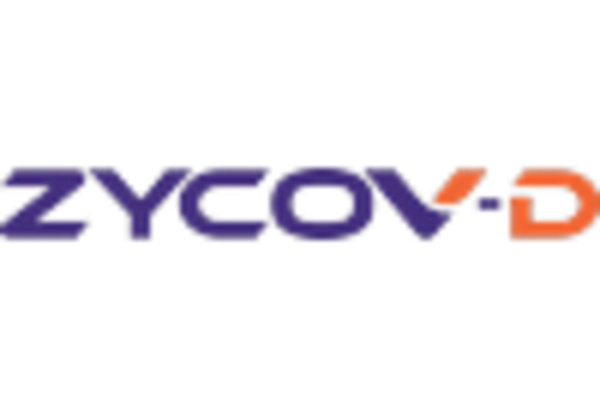Increasing Consumer Awareness
The herbal nanomedicine market is experiencing significant growth in consumer awareness regarding the benefits of natural remedies. As individuals become more informed about the potential side effects of synthetic drugs, there is a growing inclination towards herbal alternatives. This shift is particularly pronounced in the GCC region, where traditional medicine has deep cultural roots. Reports indicate that the market for herbal products is projected to grow at a CAGR of approximately 10% over the next five years. This increasing awareness is likely to drive demand for herbal nanomedicine, as consumers seek effective and safer treatment options. Furthermore, educational campaigns and health initiatives are contributing to this trend, fostering a more health-conscious population that values natural healing methods. Consequently, the herbal nanomedicine market is poised for significant growth as it aligns with evolving consumer preferences.
Rising Healthcare Expenditure
The herbal nanomedicine market is likely to benefit from the rising healthcare expenditure in the GCC region. Governments are increasingly allocating funds to improve healthcare infrastructure and promote alternative medicine practices. This trend is reflected in the growing number of healthcare facilities that offer herbal treatments alongside conventional medicine. According to recent data, healthcare spending in the GCC is expected to reach $100 billion by 2025, indicating a robust investment in health services. As healthcare systems evolve, there is a greater acceptance of herbal nanomedicine as a viable treatment option. This increased funding not only supports research and development but also enhances accessibility for patients seeking herbal solutions. Consequently, the herbal nanomedicine market is positioned to thrive as it aligns with the broader healthcare objectives of the region.
Cultural Acceptance of Herbal Medicine
Cultural acceptance of herbal medicine is a significant driver for the herbal nanomedicine market in the GCC. Traditional practices have long embraced the use of herbal remedies, and this cultural heritage continues to influence modern healthcare choices. The integration of nanotechnology into herbal formulations is seen as a way to modernize these traditional practices while maintaining their efficacy. As consumers in the GCC increasingly seek treatments that resonate with their cultural beliefs, the demand for herbal nanomedicine is expected to rise. This acceptance is further supported by local health authorities promoting the use of herbal products as part of holistic health approaches. The herbal nanomedicine market is thus likely to flourish, as it aligns with the cultural values and preferences of the population.
Regulatory Support for Herbal Products
The herbal nanomedicine market is benefiting from a supportive regulatory environment that encourages the development and commercialization of herbal products. In the GCC, regulatory bodies are increasingly recognizing the importance of herbal medicine and are establishing guidelines to ensure safety and efficacy. This regulatory support is crucial for fostering innovation and instilling consumer confidence in herbal nanomedicine. As regulations become more defined, manufacturers are better equipped to navigate the approval processes, leading to a more robust market. Furthermore, the establishment of quality standards for herbal products is likely to enhance market credibility, attracting both consumers and investors. The herbal nanomedicine market is thus positioned for growth, as regulatory frameworks evolve to support the integration of herbal solutions into mainstream healthcare.
Technological Innovations in Drug Delivery
Innovations in nanotechnology are playing a pivotal role in enhancing the efficacy of herbal medicines. The herbal nanomedicine market is benefiting from advancements in drug delivery systems that utilize nanoparticles to improve bioavailability and targeted delivery of active compounds. These technological breakthroughs enable the encapsulation of herbal extracts, ensuring that therapeutic agents are delivered more effectively to the desired site of action. In the GCC region, research institutions and pharmaceutical companies are increasingly investing in the development of nanocarriers for herbal formulations. This trend is expected to propel the market forward, as enhanced delivery mechanisms can lead to improved patient outcomes and satisfaction. Moreover, the integration of nanotechnology with herbal medicine may result in the creation of novel products that cater to specific health conditions, further expanding the market's potential.


